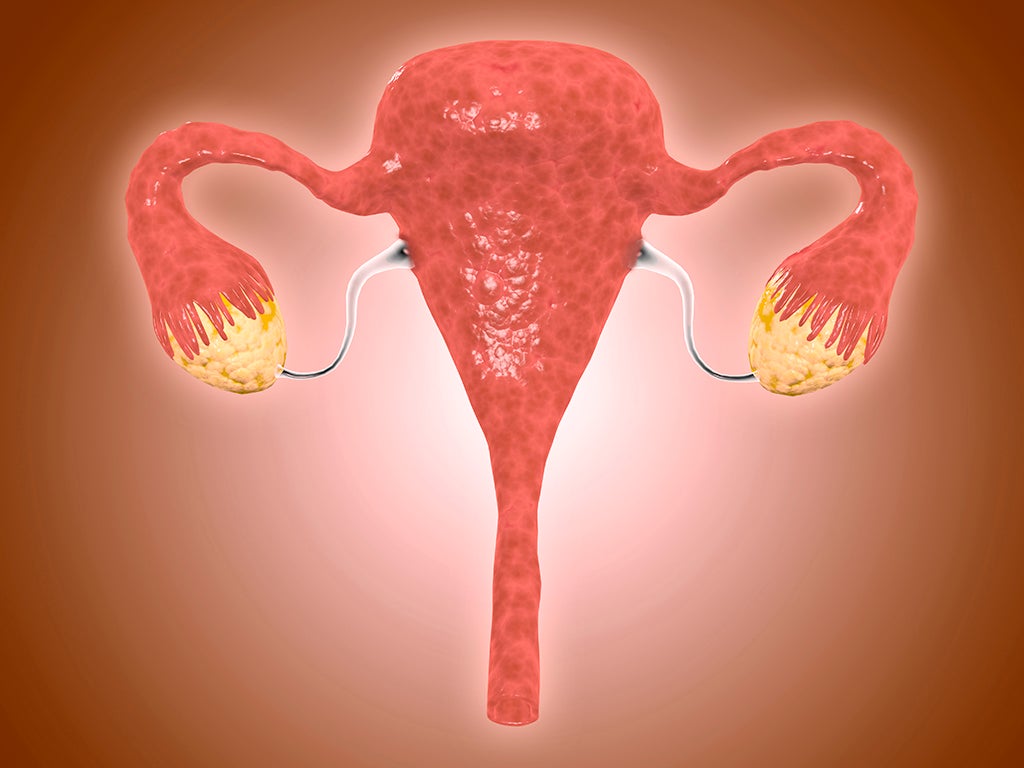PCOS: what are the symptoms of Polycystic Ovary Syndrome and how is it treated?
It can cause excessive hair growth, weight gain, irregular periods and fertility problems in women

Your support helps us to tell the story
From reproductive rights to climate change to Big Tech, The Independent is on the ground when the story is developing. Whether it's investigating the financials of Elon Musk's pro-Trump PAC or producing our latest documentary, 'The A Word', which shines a light on the American women fighting for reproductive rights, we know how important it is to parse out the facts from the messaging.
At such a critical moment in US history, we need reporters on the ground. Your donation allows us to keep sending journalists to speak to both sides of the story.
The Independent is trusted by Americans across the entire political spectrum. And unlike many other quality news outlets, we choose not to lock Americans out of our reporting and analysis with paywalls. We believe quality journalism should be available to everyone, paid for by those who can afford it.
Your support makes all the difference.What is PCOS?
Polycystic Ovary Syndrome (PCOS) is a hormone related problem caused by small cysts growing on a woman’s ovaries, which subsequently cause a hormone imbalance. This imbalance causes problems with the regularity of women’s periods and releasing eggs, and can also cause problems for women when trying to get pregnant. If not treated effectively, PCOS can also open the door to some more serious health concerns such as Diabetes and Heart Disease.
What causes PCOS?
Unfortunately, there is still some confusion throughout the medical world as to what causes PCOS. It is widely thought to have a genetic link however, this is yet to be scientifically proven.
We also know that many women suffering from PCOS are found to have a hormone imbalance which is likely to be a contributing factor. In particular, women with PCOS are known to have raised levels of 'male hormones' such as testosterone, Prolactin and LH, and are often deficient in SHBG – which also increases the effect of testosterone.
What are the main symptoms?
The symptoms associated with PCOS will vary from woman to woman, and some people will also suffer more severe symptoms than others. Generally speaking though, the most common symptoms experienced by women suffering from PCOS include:
- Difficulty in getting pregnant due to a lack of ovulation
- Weight gain
- Acne
- Irregular periods
- Hair loss from the head
- Excessive hair growth all over the body.
What should you do if you think you may have PCOS?
If you are suffering from any of the symptoms associated with PCOS then in the first instance it is advisable that you book in to see your GP who will be able to carry out the necessary checks and rule out any other conditions. In some cases, they might also carry out an ultrasound scan, and/or a blood test as part of the exploration process. Following a diagnosis you may be referred to a PCOS specialist who will be able to help advise you on the best way to manage the symptoms.
How common is it?
It's thought to be very common and affect millions of women in the UK. Roughly 30% of women will show characteristics of PCOS syndrome in their lifetime. Women who are of childbearing age (early 20’s to mid-30’s) are most commonly affected by PCOS, however it can develop at any age.
How is it treated?
Sadly, there is no cure for PCOS however, there are a number of ways in which patients can manage their symptoms effectively.
In some cases, a weight loss programme may be advised to help reduce the effect of PCOS. Studies have shown that in overweight women, a decrease of just 5% of their body mass can have a positive impact on PCOS.
For those suffering from missed or irregular periods it is often advisable to go on the contraceptive pill which can help to regulate a cycle.
If you are trying to get pregnant and suffer from PCOS then it is recommended that you visit a fertility specialist who will be able to check if there are any further problems, such as blocked fallopian tubes, before advising on the best cause of medication. Clomifene is often prescribed in the first instance and is used to encourage the regular release of an egg from the ovaries. If this medication is found to be unsuccessful, then there are a number of other options which can be considered.
Dr Israel Ortega is a fertility and PCOS specialist from clinic IVI Fertility
For more information visit www.nhs.uk/polycystic-ovarian-syndrome
Join our commenting forum
Join thought-provoking conversations, follow other Independent readers and see their replies
Comments